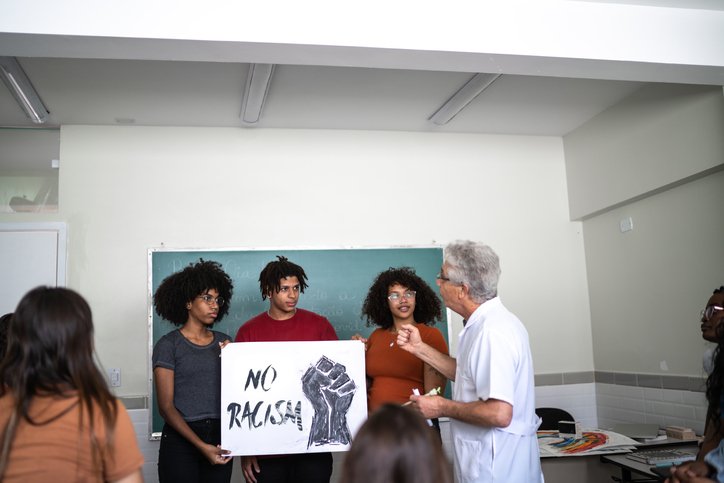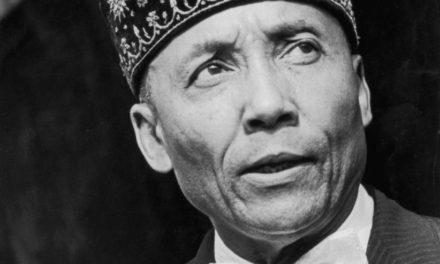
This week, Florida rejected curriculum for an Advanced Placement African American Studies class. The governor of Florida, a likely presidential candidate for 2024, justified this decision by sharing, “we want education, not indoctrination.”
The U.S. continues to fail not only those whose history and experiences are underrepresented, but also white people’s understanding of and empathy for those who do not share our identities. I have written before about the ways my own education surrounding Black history in K-12 settings failed me: situating anti-Black racism in the past, drastically oversimplified, fraught with dominant narratives that served white comfort, and neglecting to humanize the experiences of Black people and communities.
The consequences of this standard of education in the U.S. in recent decades are increasingly apparent. Forty-seven percent of white Americans do not believe systemic racism exists, or remain unsure. At The Winters Group, we encounter these skeptics daily, and I often envision a “future state” where we can effectively equip young people with understandings of equity and justice in early education — preempting the need to “unlearn” so much later in life. Race-based fear and division have become a hallmark of political discourse in the U.S., racist rhetoric has become normalized in the highest political offices, and hate crimes have spiked.
The rejection of this course in Florida only adds fuel to this fire. It is exactly the type of curriculum I wish I had had access to in high school, that could have supported me in a depth of understanding I did not find until college when I chose to enroll in ethnic studies courses. The rejection of this curriculum is squarely situated in the territory of “political agenda” — one that values the experiences and history of white people above others: white supremacy.
Black history is not a political agenda. It is a truth, a lived experience, a celebration. It offers vital context for understanding dynamics that continue to play out today, at all levels of systems.
As we look ahead to Black History Month, reject the normalization of anti-Black racism and white supremacy in your community and in political discourse. Educate yourself on significant historical events like the Tulsa Race Massacre that rarely make it into history curricula. Do not just honor the hardships and resistance that have been part of Black history — name the system of white supremacy that purposefully created these hardships, and honor Black joy and humanity in the past, present, and future.
If you are white, ask yourself how many opportunities you have had to build understanding of and trust with people whose racialized experiences are different from your own. If the answer is “not many,” you are in the majority … also, spend some time reflecting on what you may have missed as a result, and commit to disrupting this norm. Intentionally expanding the diversity of perspectives you engage with in your reading and viewing of social or other media is a great first step to build your understanding of others’ lived experiences and increase your racial “literacy” without burdening others to educate you. This will, in turn, prepare you to better understand the experiences of your cultural others in day-to-day interactions and more effectively build trust and understanding. If your education did not prepare you to do this, interrogate the assumption that it was “neutral,” and reflect on what “political agendas” may have informed it.
Finally, commit to action within your sphere of influence that can foster change for future generations and their access to education and information that names and challenges white supremacy. Here are a few ideas:
- Commit to researching candidates and voting in local and state elections if you are able
- Volunteer or donate to help elect candidates rejecting white supremacy
- Speak with friends and family about the normalization of white supremacy and why it concerns you
- Contact your representatives to share your concerns
- Share your perspectives or favorite resources on social media
- Write a letter to the editor or use other platforms you have access to
- Attend a local school board meeting to share your perspective on curriculum priorities
- Talk with children and young people in your life about race and racism in the past and present
- Inquire about identities and stories represented in literature and other media in schools or programs you may be affiliated with
- Donate inclusive literature or other media to community centers, schools, or other spaces available to young people


















